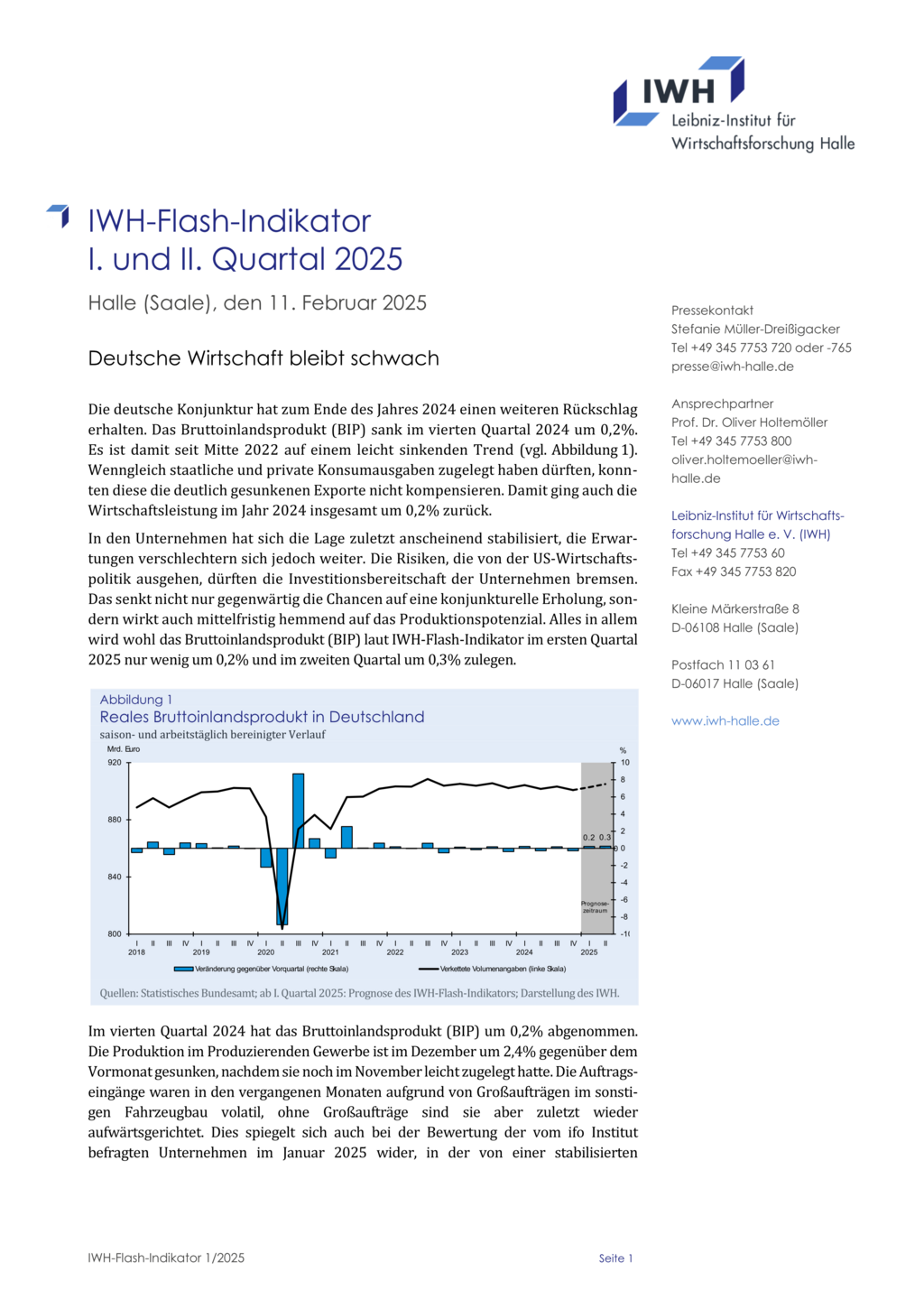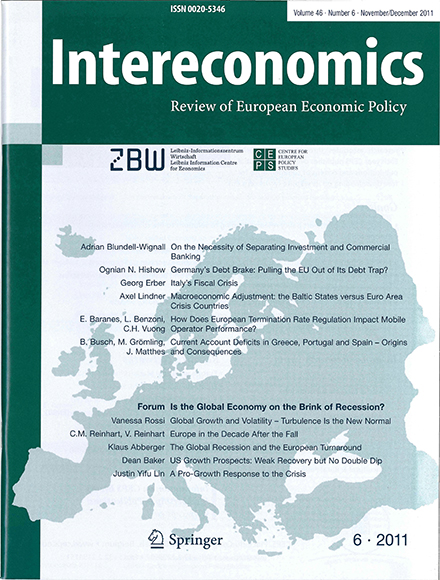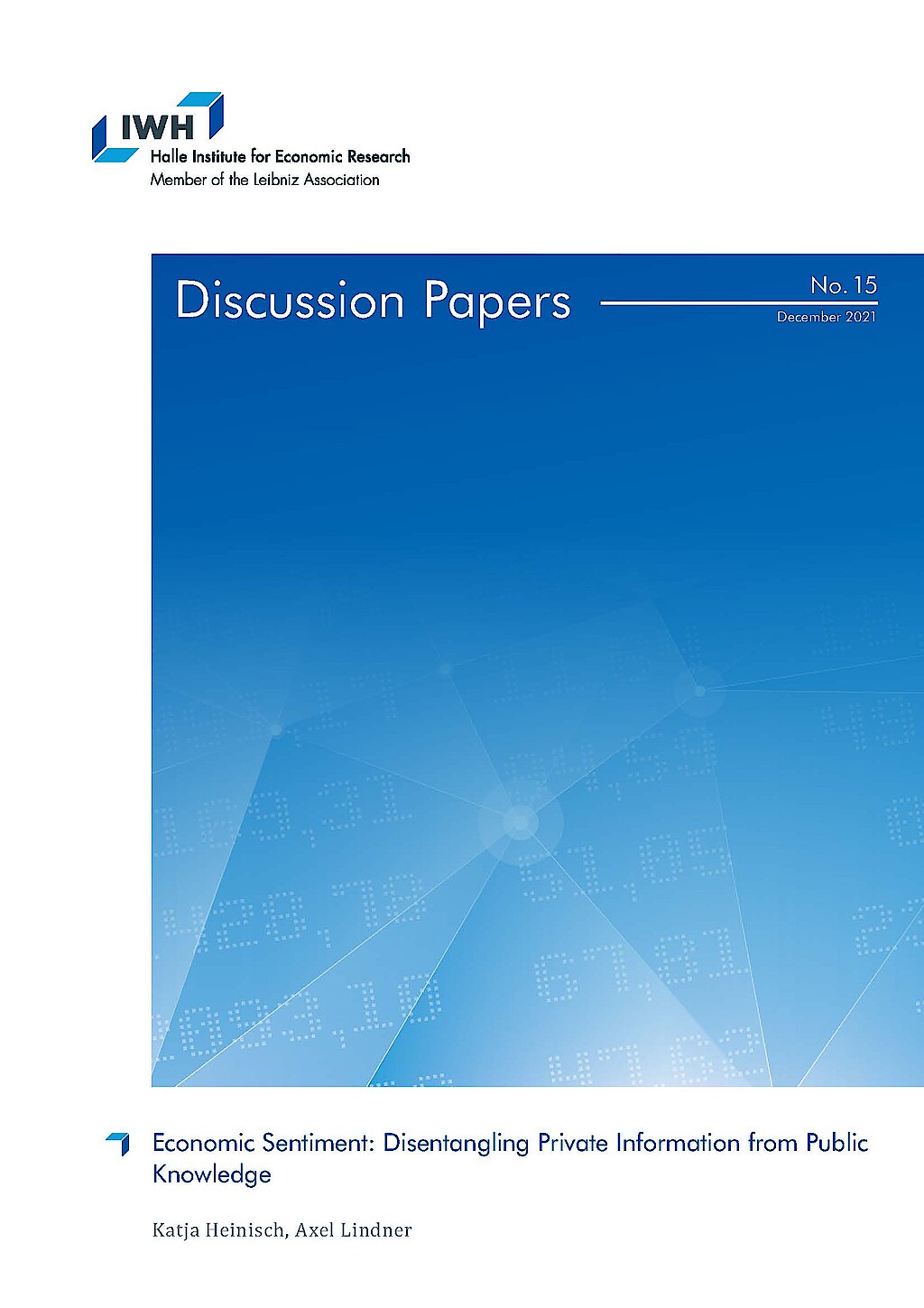Dr. Axel Lindner

Aktuelle Position
seit 1/10
Stellvertretender Leiter der Abteilung Makroökonomik
Leibniz-Institut für Wirtschaftsforschung Halle (IWH)
seit 1/13
Leiter der Forschungsgruppe Makroökonomische Analysen und Prognosen
Leibniz-Institut für Wirtschaftsforschung Halle (IWH)
Forschungsschwerpunkte
- monetäre Ökonomik
- Konjunktur und Wachstum im Euroraum
Axel Lindner ist seit 2001 am Institut und seit 2010 stellvertretender Leiter der Abteilung Makroökonomik. Seine Forschungsschwerpunkte liegen auf der europäischen Konjunkturanalyse und auf dem Gebiet des Einsatzes der Informationsökonomik bei der Konjunkturprognose. Axel Lindner ist am Institut als Ombudsperson für die Einhaltung der Regeln guter wissenschaftlicher Praxis verantwortlich.
Axel Lindner studierte und promovierte an der Ludwig-Maximilians-Universität München. Nach Aufenthalten als Gastprofessor an der Concordia University in Montreal, Kanada und als Gastwissenschaftler an der Queen's University in Kingston, Kanada, unterrichtete er am Lehrstuhl für Wirtschaftstheorie an der Goethe-Universität Frankfurt.











